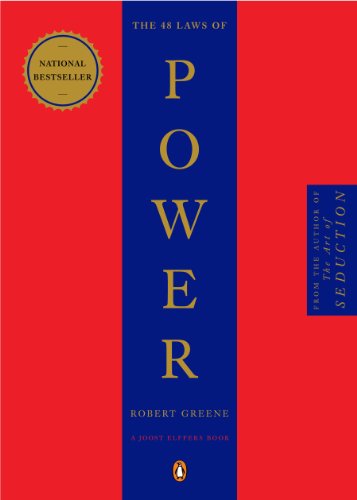

This article is an excerpt from the Shortform summary of "The 48 Laws of Power" by Robert Greene. Shortform has the world's best summaries of books you should be reading.
Like this article? Sign up for a free trial here .
Overview of Law #4: Always Say Less Than Necessary
The less you say, the more intimidating and powerful you are. Always say less than necessary. When you do speak, make it vague and ambiguous, leaving the meaning to others to interpret. They’ll be frustrated and obsessed with trying to figure you out.
Principles of Law 4
What are the principles of Law 4: Always say less than necessary? In the power game, appearance is everything. When you always say less than necessary, you come across as powerful, intimidating, and mysterious. Keep these principles in mind:
- When you’re silent, you make other people uncomfortable. Because they dislike uncertainty, people want to know what you’re thinking. When you control your words, they can’t figure out what you mean or intend.
- Short answers and silence make people feel defensive. They quickly try to fill the silence, and in the process reveal motivations and weaknesses — information you can use. Later they’ll obsess over every word you said and its potential implications. The inordinate attention they give to your brief comments adds to your power.
- In most instances, the less you say, the more important and profound it seems, and the more mysterious you are. For example, Andy Warhol found that he had more power when he said little and kept his comments vague and ambiguous. Sometimes he made purposely meaningless comments. Interviewers struggled to interpret what he meant, believing it was profound. He learned from fellow artist Marcel Duchamp that the less he said about his work, the more people talked about it and the more desirable it became.
- Besides creating an impression of great import, saying little avoids the risk of saying something foolish, which can be costly. For instance, in the early 1800s, a Russian rebel named Ryleyev talked too much and paid for it with his life. Nicholas I had sentenced him to death, but at the moment he was being hanged the rope broke. Believing he’d be pardoned, as usually happened in such cases, he yelled to the crowd that Russia couldn’t get anything right, even rope. Instead of pardoning him, Nicholas responded, “Let’s prove the contrary,” and Ryleyev was hanged the next day with a rope that held. Ryleyev hadn’t learned to always say less than necessary.
Putting to Work Law 4
Here’s an example of how to apply Law 4 of the 48 Laws of Power. King Louis XIV used brevity and silence to maintain power. He knew the value of always saying less than necessary.
When his underlings had an issue to present to him, they first debated it among themselves and then chose two ministers or nobles to make the case before him, with one person speaking for each side. Louis XIV listened in silence.
The silence was an act to keep everyone off balance. No one knew where he stood and they couldn’t anticipate how he’d react. Nor could anyone deceive him by saying what he wanted to hear, because nobody knew what that was. In their nervousness people tended to ramble, revealing information Louis could later use against them.
At the end of each presentation, the king said merely, “I shall see.” He didn’t discuss the issue with anyone, or even announce a decision. People had to wait to see the results of his decisions. His silence kept everyone around him in fear and under his control. Louis XIV would always say less than necessary.
By contrast, Coriolanus, a military hero of ancient Rome, couldn’t shut up. After winning many battles, he ran for political office. He impressed people at his rallies by displaying his battle scars, and they paid little attention to his words. His election seemed assured until election day when he held a huge rally in the forum, bragging about himself and claiming victory before the vote. People didn’t like that and he lost the election. Coriolanus did not always say less than necessary, and he paid for it.
Exceptions to Law 4
Are there any exceptions to 48 Laws of Power Law 4: Always say less than necessary? There are times when silence isn’t the best course:
- It can make people suspicious, and in the case of your superiors, it can make them feel insecure. An ambiguous comment can be misinterpreted to your detriment.
- Sometimes it’s smarter to play the court jester, and make yourself seem foolish and harmless despite being smarter than the king. No one suspects you of having an agenda.
- You may want to use words as a smokescreen to hide your intentions. You can distract your target by talking, and make them less suspicious of you.
But in general, remember Law 4: Always say less than necessary.
———End of Preview———

Like what you just read? Read the rest of the world's best summary of "The 48 Laws of Power" at Shortform . Learn the book's critical concepts in 20 minutes or less .
Here's what you'll find in our full The 48 Laws of Power summary :
- Why you should never outshine your boss
- How to appear like a friend but behave like a spy
- The 6 rules you absolutely must not violate, if you want to be successful







Loving God is more FAR more important than being powerful. Doing the Lords will is far more important than being powerful. Power often corrupts- and God hates corruption. Regardless that Silence is Wisdom.
This is one of my favorite book. Robert Green rocks!!!